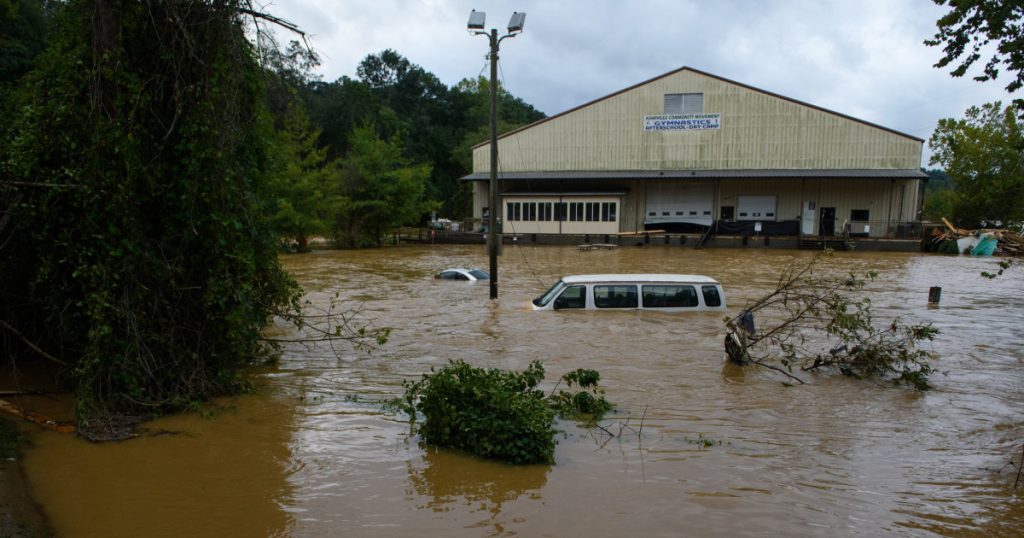Donald Trump, the GOP presidential nominee, is set to visit Georgia today to assess the damage caused by the recent storm that has claimed at least 17 lives. Trump will be briefed on the situation, assist with relief efforts, and deliver remarks during his visit. Georgia Governor Brian Kemp will be touring storm damage in Augusta and will not be present during Trump’s stop. Meanwhile, President Joe Biden and Vice President Kamala Harris plan to travel to impacted areas once emergency operations have stabilized.
The remnants of Hurricane Helene combined with a mild rain front are expected to bring more rain to parts of the Central Appalachians. Federal forecasters predict that between 1 to 2 inches of rain, with up to 5 inches in some areas, could fall from West Virginia into northwest Virginia and far western Maryland. This additional rainfall poses a risk for further flooding in the already-saturated region. The rain is forecasted to move out of the area by Tuesday or Wednesday.
In Hendersonville, North Carolina, residents were seen touring their flooded neighborhood in kayaks following Hurricane Helene. The storm may be dissipating, but heavy rain and flash flooding continue to be threats for parts of the Appalachians. The situation remains precarious for those living in affected areas, as the aftermath of the storm continues to impact daily life. It is crucial for residents to stay vigilant and take necessary precautions to ensure their safety.
The National Weather Service’s Weather Prediction Center is closely monitoring the situation and providing updates on the expected rainfall in the Central Appalachians. Meteorologist Jeremy Geiger from the Baltimore/Washington office in Sterling, Virginia, noted that there is moisture on the east side of the front that is being funneled into the area, along with a localized feature causing a focus of rain. This information is essential for residents and emergency responders to prepare for potential flooding and take appropriate actions.
The impact of Hurricane Helene is evident across the region, with devastating consequences for communities in Georgia, North Carolina, and other affected areas. Relief efforts are underway, with government officials and volunteer organizations working together to provide assistance to those in need. The coordination between federal, state, and local authorities is crucial in managing the aftermath of the storm and ensuring the safety and well-being of residents. It is a challenging time for all those affected, but the resilience and solidarity of communities will help in the recovery and rebuilding process.
As the situation continues to evolve, it is important for residents to stay informed and follow guidance from local authorities. The safety of individuals should be the top priority as the region navigates through the aftermath of Hurricane Helene. With the support of government agencies, emergency responders, and volunteers, communities will be able to recover from the damage caused by the storm and rebuild stronger than before. The days ahead will require resilience, cooperation, and determination from all those involved in the recovery efforts.


